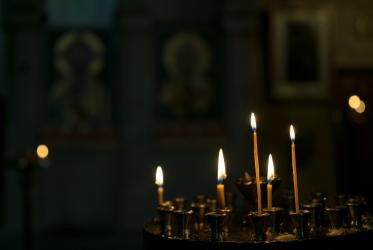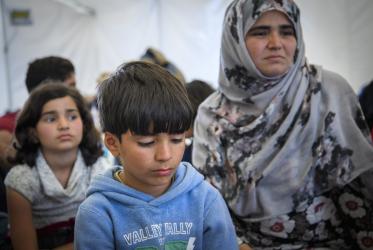Displaying 81 - 100 of 158
Religious leaders explore message of peace in Burundi, DRC
23 February 2017
“Overcoming economic injustice” vision of WCC’s Athena Peralta
23 February 2017
WCC expresses sorrow in wake of attack on Muslim shrine in Pakistan
17 February 2017
An interview with the Ethiopian Patriarch, Abune Matthias
14 February 2017
Patriarch Matthias: “Peace is the message of every day”
10 February 2017
WCC organizes solidarity visit to Ethiopia
24 October 2016
New videos help congregations hasten HIV response
20 October 2016
Churches call for peaceful dialogue in Ethiopia
19 August 2016
In wake of Pakistan attack, WCC offers prayers, support
08 August 2016
New Executive Committee members elected in Trondheim
28 June 2016
Winners of WCC photo contest announced
09 May 2016









